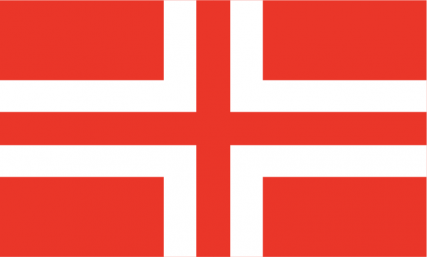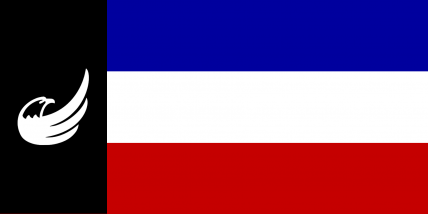
Advertisement

![]() by Altigracia » Mon Sep 03, 2018 5:25 am
by Altigracia » Mon Sep 03, 2018 5:25 am

![]() by Great Nortend » Mon Sep 03, 2018 6:27 am
by Great Nortend » Mon Sep 03, 2018 6:27 am

![]() by Saint Dillo » Mon Sep 03, 2018 1:43 pm
by Saint Dillo » Mon Sep 03, 2018 1:43 pm

![]() by Saint Dillo » Tue Sep 04, 2018 1:13 pm
by Saint Dillo » Tue Sep 04, 2018 1:13 pm

![]() by New Byelorussia » Thu Sep 06, 2018 2:30 am
by New Byelorussia » Thu Sep 06, 2018 2:30 am
NEWS: Border skirmish with Poland, 3 dead
![]() by Gandoor » Thu Sep 06, 2018 9:14 am
by Gandoor » Thu Sep 06, 2018 9:14 am

![]() by Lillorainen » Thu Sep 06, 2018 9:29 am
by Lillorainen » Thu Sep 06, 2018 9:29 am

![]() by Arthropol » Thu Sep 06, 2018 7:10 pm
by Arthropol » Thu Sep 06, 2018 7:10 pm

![]() by New Transeurasia » Thu Sep 06, 2018 8:53 pm
by New Transeurasia » Thu Sep 06, 2018 8:53 pm
ENN 欧亜囯家通訊社 Eurasian National News: S7 Airlines flight 661 makes emergency landing in Miiriney, RU after failed hijacking | CTVN 长春広播电視集団 Chángchūn Television Network: President Kuzma makes speech on plans for her 2nd term after re-election

![]() by The Cult of Raguta-Gu » Fri Sep 07, 2018 12:04 pm
by The Cult of Raguta-Gu » Fri Sep 07, 2018 12:04 pm

![]() by Vallermoore » Fri Sep 07, 2018 4:14 pm
by Vallermoore » Fri Sep 07, 2018 4:14 pm

![]() by Auzkhia » Fri Sep 07, 2018 10:44 pm
by Auzkhia » Fri Sep 07, 2018 10:44 pm

![]() by Galaxy Land » Sat Sep 08, 2018 8:27 am
by Galaxy Land » Sat Sep 08, 2018 8:27 am

![]() by New Transeurasia » Sat Sep 08, 2018 1:15 pm
by New Transeurasia » Sat Sep 08, 2018 1:15 pm
[b]Do your nation's citizens prefer to live in city centers, city suburbs, towns, or rural areas?[/b]:
[b]What is the percentage of YN's people that lives in city centers?[/b]:
[b]What is the percentage of YN's people that lives in city suburbs?[/b]:
[b]What is the percentage of YN's people that lives in towns?[/b]:
[b]What is the percentage of YN's people that lives in rural areas?[/b]:
[b]What mode of transportation does YN's people prefer to commute to work?[/b]:
[b]What are apartments/condominiums like in YN?[/b]:
[b]What are suburban houses and houses in towns like in YN?[/b]:
[b]What are houses in rural areas like in YN?[/b]:ENN 欧亜囯家通訊社 Eurasian National News: S7 Airlines flight 661 makes emergency landing in Miiriney, RU after failed hijacking | CTVN 长春広播电視集団 Chángchūn Television Network: President Kuzma makes speech on plans for her 2nd term after re-election

![]() by New Transeurasia » Sat Sep 08, 2018 1:37 pm
by New Transeurasia » Sat Sep 08, 2018 1:37 pm
ENN 欧亜囯家通訊社 Eurasian National News: S7 Airlines flight 661 makes emergency landing in Miiriney, RU after failed hijacking | CTVN 长春広播电視集団 Chángchūn Television Network: President Kuzma makes speech on plans for her 2nd term after re-election

![]() by Cartoonia » Sat Sep 08, 2018 1:38 pm
by Cartoonia » Sat Sep 08, 2018 1:38 pm
Cartoonian-Dillydale Stock Exchange…...JWC -10.0%........CIS +1.1%......CEP +2.1%......SSA -6.1%......POC -5.1%......WDC -1.2%......ABC +2.4%......RMC -1.2%......MRE +1.7%......SSC +3.1%......FSC +2.0%......KTC -0.5%......SBC -4.2%......KKF -5.3%
![]() by Vallermoore » Sat Sep 08, 2018 8:25 pm
by Vallermoore » Sat Sep 08, 2018 8:25 pm

![]() by Hadin » Mon Sep 10, 2018 8:28 pm
by Hadin » Mon Sep 10, 2018 8:28 pm

![]() by Narland » Mon Sep 10, 2018 9:19 pm
by Narland » Mon Sep 10, 2018 9:19 pm

![]() by Xzaxia » Tue Sep 11, 2018 4:35 pm
by Xzaxia » Tue Sep 11, 2018 4:35 pm

![]() by Auzkhia » Tue Sep 11, 2018 6:41 pm
by Auzkhia » Tue Sep 11, 2018 6:41 pm

![]() by Pelotas » Tue Sep 11, 2018 9:20 pm
by Pelotas » Tue Sep 11, 2018 9:20 pm

![]() by Hatterleigh » Wed Sep 12, 2018 6:04 pm
by Hatterleigh » Wed Sep 12, 2018 6:04 pm
National News Network: William Botrum entering last days in office - President-elect Rood preparing or termOverview of Hatterleigh | William Botrum, Hatterleigh's President | Hatterlese Embassy Program | I don't use NS stats.
![]() by Gandoor » Thu Sep 13, 2018 1:42 pm
by Gandoor » Thu Sep 13, 2018 1:42 pm
Advertisement
Return to Factbooks and National Information
Users browsing this forum: No registered users
Advertisement